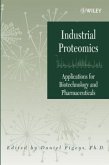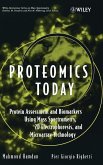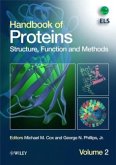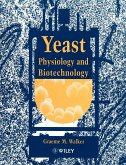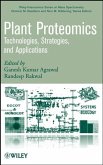This work provides an overview of microbial proteomics with the aim of highlighting practical deliverables that can be applied to work in eukaryotic proteomes. It shows how accomplishments in this field have contributed to our understanding of genomic and cellular function, as well as modes of therapeutic action, drug toxicity and biomolecular interactions. Sections look at proteomics as applied to research in microbial physiology, model organism studies, microbes in agriculture, industry, and medicine, vaccinology, protein-protein networks, and mathematical modeling.
Discover important lessons learned about whole organism biology via microbial proteomics
This text provides an exhaustive analysis and presentation of current research in the field of microbial proteomics, with an emphasis on new developments and applications and future directions in research. The editors and authors show how and why the relative simplicity of microbes has made them attractive targets for extensive experimental manipulation in a quest for both improved disease prevention and treatment and an improved understanding of whole organism functional biology. In particular, the text demonstrates how microbial proteomic analyses can aid in drug discovery, including identification of new targets, novel diagnostic markers, and lead optimization.
Each chapter is written by one or more leading experts in the field and carefully edited to ensure a consistent and thorough approach throughout. Methods, technologies, and tools associated with the most promising approaches are stressed. Key topics covered include:
Microbial pathogenesis at the proteome level
Whole cell modeling
Structural proteomics and computational analysis
Biomolecular interactions
Physiological proteomics
Metabolic reconstruction using proteomics data
While presenting the practical utility of proteomics data, the text is also clear on the field s current limitations, pointing to areas where further investigation is needed.
Offering a state-of-the-art perspective from internationally recognized experts, this text is ideally suited for researchers and students across the gamut of genomic sciences, including biochemistry, microbiology, molecular biology, genetics, biomedical and pharmaceutical sciences, biotechnology, and veterinary science.
Discover important lessons learned about whole organism biology via microbial proteomics
This text provides an exhaustive analysis and presentation of current research in the field of microbial proteomics, with an emphasis on new developments and applications and future directions in research. The editors and authors show how and why the relative simplicity of microbes has made them attractive targets for extensive experimental manipulation in a quest for both improved disease prevention and treatment and an improved understanding of whole organism functional biology. In particular, the text demonstrates how microbial proteomic analyses can aid in drug discovery, including identification of new targets, novel diagnostic markers, and lead optimization.
Each chapter is written by one or more leading experts in the field and carefully edited to ensure a consistent and thorough approach throughout. Methods, technologies, and tools associated with the most promising approaches are stressed. Key topics covered include:
Microbial pathogenesis at the proteome level
Whole cell modeling
Structural proteomics and computational analysis
Biomolecular interactions
Physiological proteomics
Metabolic reconstruction using proteomics data
While presenting the practical utility of proteomics data, the text is also clear on the field s current limitations, pointing to areas where further investigation is needed.
Offering a state-of-the-art perspective from internationally recognized experts, this text is ideally suited for researchers and students across the gamut of genomic sciences, including biochemistry, microbiology, molecular biology, genetics, biomedical and pharmaceutical sciences, biotechnology, and veterinary science.


